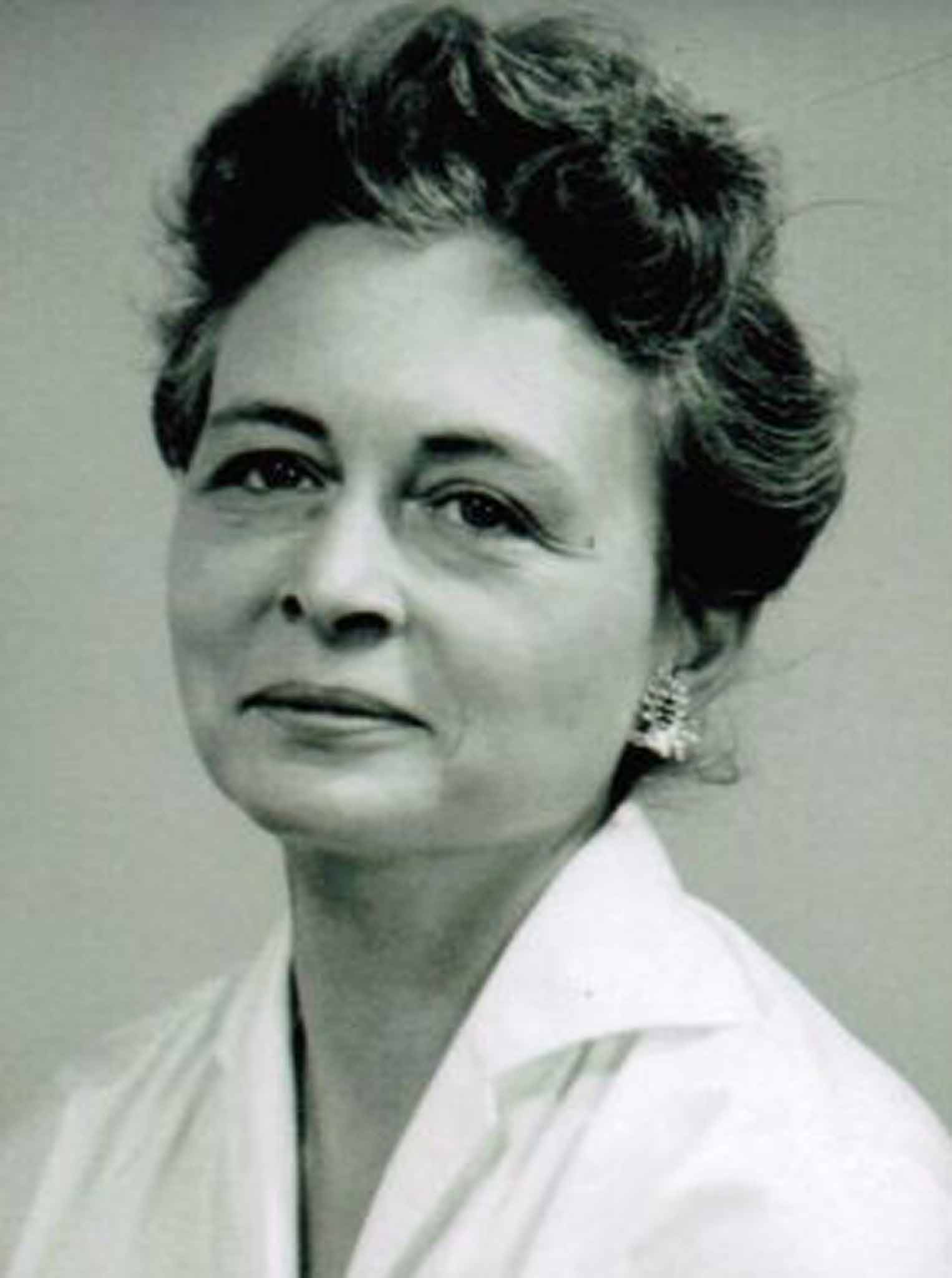Professor Isabel de Madariaga: Historian and inspirational teacher who changed our perceptions of Catherine the Great and Ivan the Terrible

Isabel de Madariaga transformed the study of 18th century Russia and was an inspiration for scholars and students worldwide. She was born in 1919, the daughter of Salvador de Madariaga, the ambassador and representative of the Spanish Republic to France and the League of Nations, and a distinguished historian and writer. Isabel saw herself as a genuine "European"; she was fiercely proud of her Spanish roots but also conscious of the Scottish and British ancestry of her mother, Constance Helen Margaret, née Archibald.
She was given a cosmopolitan education in Spain, France and Switzerland, met musicians, artists and writers from all over Europe in her youth and was fluent in many European languages. But she devoted her life to an understanding of Russia.
The family had to leave Spain in 1936; Isabel arrived in London and registered as the only student for the Russian Language and Literature degree at the School of Slavonic and East European Studies in London University (now part of University College London). The outbreak of war brought evacuation to Oxford, where she completed her degree.
She worked in the BBC during the rest of the war, married Leonard Schapiro (their marriage was dissolved in 1976) then returned to London, to the LSE, to complete her doctoral studies. There followed a temporary lectureship at the LSE and a post as editorial secretary of the Slavonic and East European Review. She was a co-founding member of the editorial board of the journal Government and Opposition, and had lectureships at the universities of Sussex and Lancaster until she returned to the School of Slavonic and East European Studies as a Reader in 1971 and then as Professor in Russian Studies from 1982.
At the School she was an energetic and sometimes formidable colleague and teacher who played a central role in the work of the Review and in establishing a new degree in Russian and Soviet Studies. She was a determined and courageous chairman (she firmly rejected the term "chair") of the Academic Assembly and member of Council at a time when the future of the institution was under threat. She was elected Fellow of the British Academy in 1990.
Her first major work, Britain, Russia and the Armed Neutrality of 1780: Sir James Harris's Mission to St Petersburg during the American Revolution (1962) was based on her two-volume PhD thesis (after which, she claimed, the University had to specify a word limit!). She drew meticulously on British archival sources and revealed the complexities of European relations at a time when Russia was emerging on the world stage. The study also demonstrated that diplomatic relations could only be understood within the political cultures of the countries involved.
Her sophisticated analysis of Russia's ambitions and fears in this period led almost inevitably to the great work of her life, an understanding of the personality and the policies of Catherine the Great. Over the next 20 years she published articles and papers on many aspects of Catherine's reign – education, serfdom, intellectual thought, law – and this work culminated in the magisterial Russia in the Age of Catherine the Great (1981).
The book displayed a vast knowledge not only of Catherine's extraordinary personality, life, and loves, but also of the Russian and international context in which she operated; it is still the best analysis of the social, economic, institutional and diplomatic history of Russia in the second half of the 18th century. In the process de Madariaga redefined Catherine in a way that demolished previous caricatures and which has changed scholarly perceptions of the ruler and her reign, both in Western scholarship and in Soviet, and particularly post-Soviet Russian, scholarship.
The Catherine who emerged was serious, tolerant, and committed to reform but was constrained by the social, economic and political realities of the time. But, above all, she was a European ruler who wanted Russia to take her rightful place as a civilised member of the family of European great powers.
The book was followed by Catherine the Great: A Short History (1990), and in retirement she wrote another major study of a very different ruler, Ivan the Terrible (2005), which challenged popular misconceptions and, again, put his policies within the context of Russia's domestic and international position. But Catherine II remained her favourite: as she wrote in an article for History Today in 2001."Since I first took Catherine seriously as a ruler, some 40 years ago, I have come to like her very much and she has become a 'close friend'."
Isabel de Madariaga was not merely a "close friend" of Catherine II; she also touched the lives of her colleagues and students, who held her in great affection as well as enormous esteem. She had a formidable intellect but her passion for the subject and her genuine interest in the work of others, and her generosity with her time, meant that many scholars benefited from her wisdom, her penetrating comments on drafts of their written work and her kindness and support.
The fall of the Soviet Union allowed her to reach a new generation of Russian scholars who were eager to reappraise their own history and historical approaches. Strikingly good looking, she was an imposing presence at any conference and academic event until the end of her life and brought an extraordinary depth and breadth of knowledge to any discussion, not only of Russia but of European culture. All of us who were privileged to call her by her childhood name of "Lolita", or even "Lol", have lost an inspirational scholar and a wonderful friend.
Isabel Margaret de Madariaga, scholar: born Glasgow 27 August 1919; married 1943 Leonard Schapiro (divorced 1976; died 1983); died London 16 June 2014.
Join our commenting forum
Join thought-provoking conversations, follow other Independent readers and see their replies
Comments
Bookmark popover
Removed from bookmarks